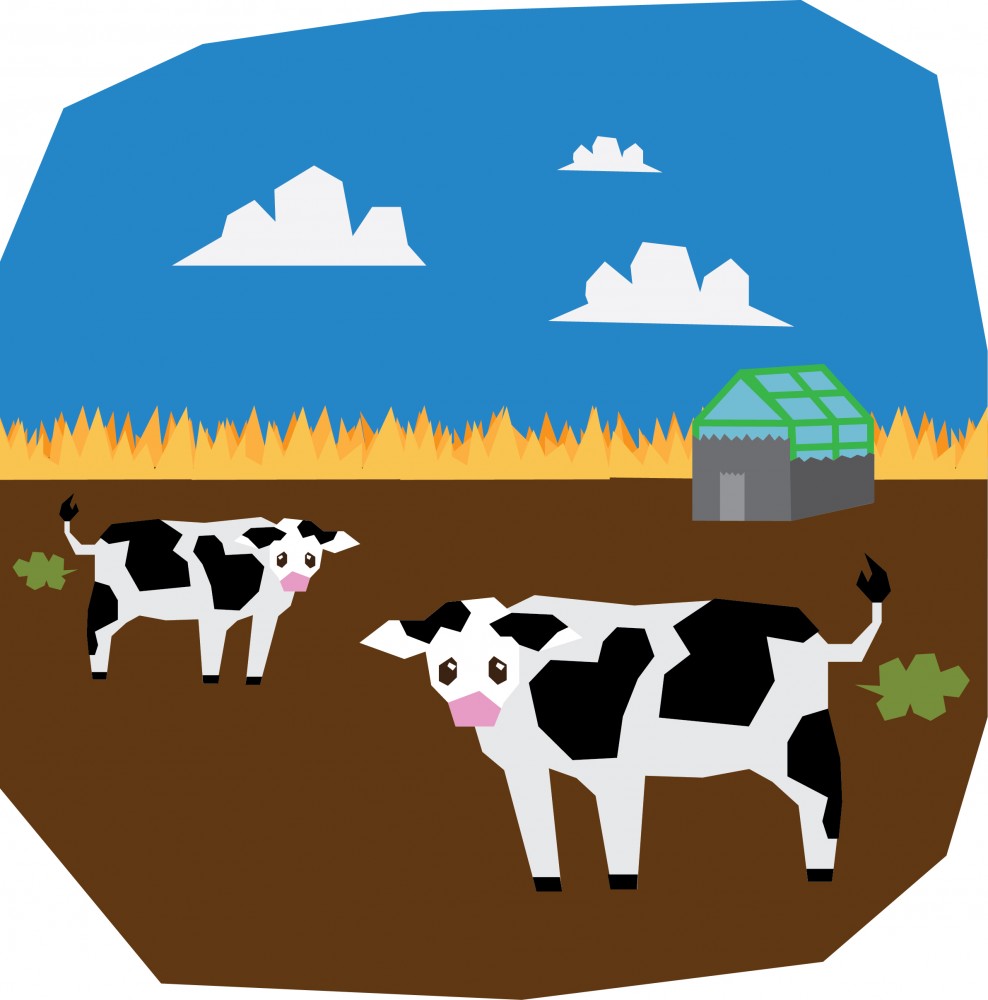A review released by University of Minnesota researchers late last month looked at the world’s changing diets, and a related increase in disease and environmental degradation that comes with it – what researchers have called the diet, health and environment “trilemma.”
With the world population expected to reach over 9 billion people by the mid-century, feeding that amount of people will come with challenges and risks. As societies become richer and more urbanized, the food the population consumes becomes higher in calories and leans heavily on animal products. These trends are on a trajectory to become more severe during the coming decades, especially in developing nations, according to the article.
With these changes, there is an increased prevalence of diet-related diseases such as diabetes, heart disease and obesity, as well as an increase in fertilizer use, biodiversity loss and greenhouse gas emissions.
The review was a collaboration between Michael Clark, a University graduate student, and University faculty members including Jason Hill, a professor in the Department of Bioproducts and Biosystems Engineering.
Hill said that the world faces a challenge in trying to solve the diet, health and environmental problems. “And these challenges are linked,” he added.
Different foods take up different amounts of land and can release varying amounts of greenhouse gas emissions. Research has found that plant-based foods often have the lowest emissions per kilocalorie of food produced and also require the least amount of land.
Animals such as cattle, sheep and goats require approximately 2,000 to 10,000 percent more land than plant-based foods, depending on the extent of their grazing. They can also contribute up to 10,000 percent more greenhouse gas emissions. This is largely in part because of the inefficiency with which they convert feed into human-edible food, according to the article.
“We have a lot of resources going to food and those resources have an environmental impact,” said Jennifer Schmitt, program director of the NorthStar Initiative at the Institute on the Environment. “One could argue it’s justifiable — we have to feed ourselves — but when we have excess resources … then we’re not getting a benefit from it and we’re actually causing more harm.”
Increasing crop yield and productivity is important for an increasing population, but can negatively affect the planet. Food production can be increased in two ways, said Deepak Ray, a scientist at the Institute on the Environment. The area of the harvest can be increased or the production yield of the crop can.
“Agriculture is affected by our weather and climate, but it also affects our weather and climate,” Ray said.
The trends found in food consumption can also be applied to human health, according to the review. In general, diets higher in plant-based foods are associated with reduced disease risk, compared to omnivorous diets where people consume more meat and dairy. Consuming red or processed red meats, which the World Health Organization lists as Group 2A and Group 1 (the same level as smoking tobacco) carcinogens respectively, is associated with poor health and diet-related disease.
The review looked at possible solutions for the issues presented. One option suggested a switch to more plant-based diets, such as Mediterranean, vegetarian or vegan diets. Global adoption of these healthier diets could reduce global diet-related emissions by up to 60 percent, research found. A dietary switch could also simultaneously benefit human health, as diabetes and other food-related diseases are expected to increase over 50 percent in the next few decades.
Another suggestion the University researchers listed was to limit food waste, as 30 to 40 percent of all food production is lost or wasted.
“You put all of these [land and water] resources that have a carbon impact and have other environmental impacts … into something that just goes into the trash?” Schmitt said. “That’s a waste of resources.”
Other options include improving crop yield, improved land use planning and more efficient fertilizer use.
“There are great challenges ahead of us in solving the world’s diet, health and environmental problems,” Hill said. “But there are also things that we can do to reduce the negative impacts that this ‘trilemma’ has upon us.”








